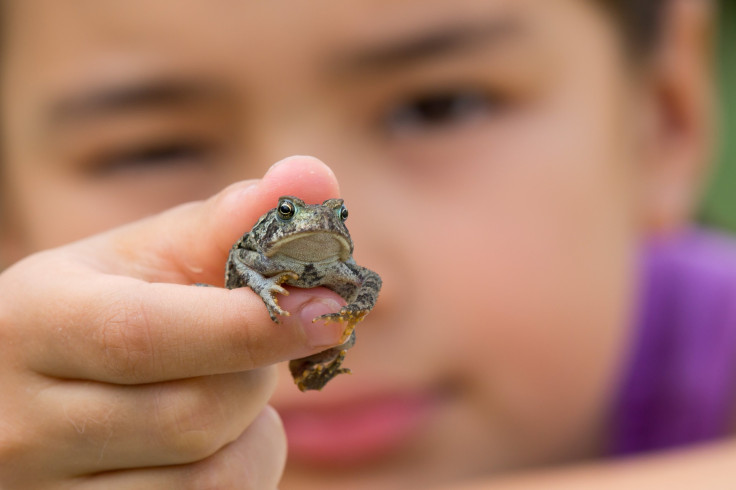Not Just Dogs! Any Pet Will Improve The Social Skills Of A Child With Autism

In classrooms and other public settings, dogs often work as “social lubricants,” helping children to talk and play with one another more naturally. Even children with autism, who generally do not respond as other children do, become more socially active when a dog enters a room. While dogs may be wonderful, a new study finds any kind of pet will improve the social skills of a child with autism.
"Finding children with autism to be more strongly bonded to smaller dogs, and parents reporting strong attachments between their children and other pets, such as rabbits or cats, serves as evidence that other types of pets could benefit children with autism as well," said Dr. Gretchen Carlisle, research fellow at the Research Center for Human-Animal Interaction in the University of Missouri College of Veterinary Medicine.
For her study, Carlisle surveyed by telephone 70 families who had a child with autism. The children, all between the ages of 8 and 18, were patients at the Thompson Center for Autism and Neurodevelopmental Disorders. Carlisle soon discovered nearly 70 percent of the participating families were dog owners.
“When I compared the social skills of children with autism who lived with dogs to those who did not, the children with dogs appeared to have greater social skills," she said. Not only did the parents describe their children as attached to the dogs, it was revealed by the children themselves — via the Companion Animal Bonding Scale — that strong bonds existed between child and dog. However, about half the families had cats, and others owned fish, farm animals, rodents, rabbits, reptiles, one bird, and in one case, a spider.
“The data revealed that children with any kind of pet in the home reported being more likely to engage in behaviors such as introducing themselves, asking for information, or responding to other people's questions,” said Carlisle. “These kinds of social skills typically are difficult for kids with autism, but this study showed children's assertiveness was greater if they lived with a pet.”
Because children with autism are highly individual, another kind of animal may provide just as much benefit as a dog, Carlisle hypothesized. “Though parents may assume having dogs are best to help their children, my data show greater social skills for children with autism who live in homes with any type of pet,” said Carlisle.
Source: Carlisle GK. The Social Skills and Attachment to Dogs of Children with Autism Spectrum Disorder. Journal of Autism and Developmental Disorders. 2014.



























